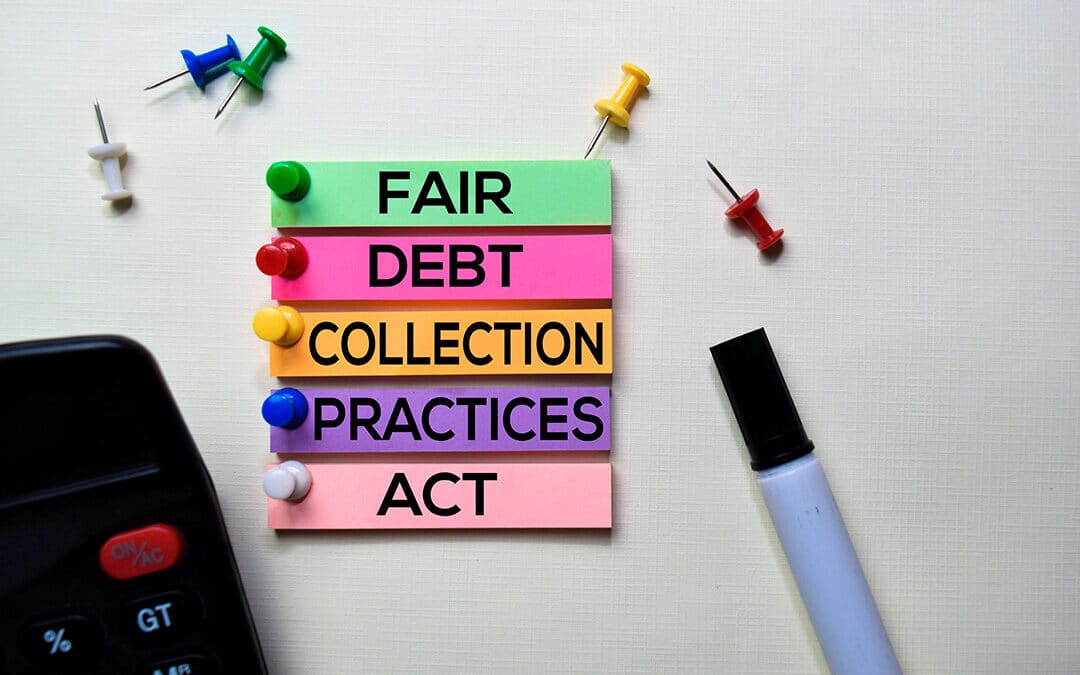When dealing with too much debt and thinking about bankruptcy, you may feel worried and unsure about what is next. However, you should know that the Fair Debt Collection Practices Act (FDCPA) gives you important legal protections.
What is the Fair Debt Collection Practices Act?
The FDCPA is a federal law that outlines what third-party debt collectors can and cannot do when attempting to collect a debt. It applies to credit card bills, medical expenses, and other personal debts that collection agencies manage.
The FDCPA works with bankruptcy laws, such as the automatic stay, to offer vital safeguards throughout the debt collection and bankruptcy steps, ensuring you are treated fairly as you try to get back on your feet.
How the FDCPA Protects You While in Bankruptcy
The FDCPA gives you several important protections that become useful during bankruptcy.
Limits on Communication
The FDCPAhas rules that debt collectors must follow when contacting a debtor by phone. A debt collectorcannot call you before 8:00 AM or after 9:00 PM. They also should not call you at work if you haveinformed them your employer does notallow such calls.
If you have hired a bankruptcy lawyer and filed bankruptcy, debt collectors must send all communication through your lawyer once you give them your lawyer’s contact information. This protection reduces your stress from dealing with debt collectors and ensures your lawyer handles all debt issues during your bankruptcy process.
Prohibition of Harassment and Manipulation
The FDCPA restricts debt collectors from using harsh, oppressive, or abusive tactics to collect money from you. The law says debt collectors cannot:
- Threaten You with Physical Harm
- Use Profanity or Offensive Language toward You
- Annoy You by Calling Repeatedly
- Tell Others You Are Not Paying Your Debt
These rules stay in effect throughout your bankruptcy, giving you peace as you and your lawyer work to get a fresh start with your finances.
Required Debt Validation
A debt collector must send a written validation notice within five business days of first contact. This notice must include:
- name of the creditor you owe
- The exact amount you owe the creditor
- Explain your right to challenge the debt’s validity within 30 days.
You can challenge the debt in writing; atwhich point, the collector pauses all collection efforts until they can verify the debt’s validity. This protects you from paying debts that might not be valid.
Protection from Misrepresentation
The act also prevents debt collectors from using lies or misleading tactics to collect debts. This protection matters a lot during bankruptcy when you may feel more financial stress.
Collectors cannot lie about how much you owe them, pretend to be lawyers or government officials if they are not, or threaten legal action they do not plan to take. They also cannot threaten you with jail time if you do not pay or make other fake threats to scare you into paying.
These protections count during bankruptcy. They help you consider your financial future without making you feel pressured or deceived about your expenses.
What to Do When a Debt Collector Breaks FDCPA Rules
If you feel that a debt has violated your FDCPA rights, contact your bankruptcy lawyer as soon as possible. They will guide you through the following steps, including filing a complaint with the Consumer Financial Protection Bureau (CFPB) or your state Attorney General. These organizations will investigate your claim and penalize debt collectors who broke the law.
You might even be able to sue the debt collector. If you win, you could get warded up to a thousand dollars plus attorney’s fees.
Remember to keep good records. Note the dates of events and what was said, and keep any letters or emails. This proof will help your case.
Getting Help Protecting Your Financial Future
If you are struggling financially, do not let your fear stop you from pursuing the financial fresh start bankruptcy could bring you.There are many laws and regulations, like theFDCPA, that help protect your rights.Working with an experienced bankruptcy lawyer could help ensure that you are being protected while in bankruptcy.
For over 25 years, the bankruptcy attorneys of Brock and Stout have guided clients through bankruptcy. Contact us today, and let us help you get on the path to a better financial future.

